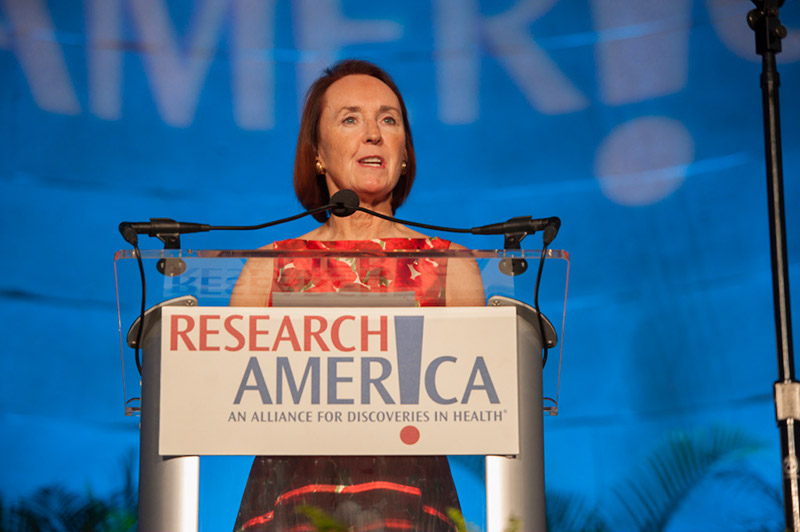What geese and rats and frogs have in common


Dear Research Advocate:
The annual Golden Goose Awards ceremony was held last evening at the Library of Congress. These awards animate a truth about basic research: it really is what’s on the inside that counts. The 2014 award honored rat massage research. Judged by that top-line description alone, who wouldn’t be skeptical? In fact, this research saves lives and health care dollars…an estimated $4.7 billion a year in the US alone. This year, the Silence of the Frogs demonstrates how the health of frogs proves the interconnectedness of our world and how one seemingly small event can have a global impact.
As they gain more and more attention, the Golden Goose Awards help more people, including policymakers, appreciate the value of investing our tax dollars in fundamental research. We owe a debt of gratitude to the founders of this initiative, in particular Rep. Jim Cooper (D-TN-5), who spoke at the program. Several other members of Congress, hailing from both sides of the aisle, were also in attendance; another demonstration of bipartisan support for research.
Speaking of awards…mark your calendar now for Research!America’s 22nd annual Advocacy Awards on March 14, 2018. The program will include a special tribute to the Honorable John Edward Porter, Research!America Chair Emeritus, for his decades-long, extraordinarily impactful commitment to advancing medical and health research. Other remarkable leaders in medical and health research advocacy will be honored that evening, including Dr. Roger Glass, Shari and Garen Staglin, Dr. Peter Hotez and the EveryLife Foundation for Rare Diseases. More honorees will be announced in the coming weeks.
Among his many contributions to our nation, John Porter was instrumental in doubling the NIH budget between 1998 and 2003 as chair of the House Labor-HHS-Education appropriations subcommittee. He knew bipartisan support was key. A recent article in The Hill authored by Representatives Elise Stefanik (R-NY-21) and Scott Peters (D-CA-52) reinforces the fact that investing in medical progress transcends party affiliation. It deserves and needs champions across the political spectrum, from every state. Check out our fact sheets demonstrating the value of R&D to each state; we hope they prove useful to your advocacy efforts.
As noted in last week’s letter, the Senate-passed Fiscal Year 2018 National Defense Authorization Act (NDAA) includes damaging provisions that place the Congressionally Directed Medical Research Program (CDMRP) at risk. However, all is not lost. The House and Senate still need to reconcile differences between their two versions of the NDAA bill through “conference” negotiations, and each pass the resulting compromise bill (otherwise known as a “conference agreement.”) Senators Roy Blunt (R-MO) and Richard Durbin (D-IL) are circulating a “Dear Colleague” encouraging their fellow senators to weigh in against including the CDMRP restrictions in the conference agreement. Use this editable message to urge your senators to sign on. And take a look at our letter to House Armed Services Committee Chairman Mac Thornberry (R-TX-13) and Ranking Member Adam Smith (D-WA-9) urging them to oppose the damaging CDMRP provisions, and also reject language in the accompanying “report language” that would compromise the integrity and effectiveness of DoD’s technology transfer program.
Last but not least, if your schedule permits and you’re in the area, please join us on October 5th for the Alzheimer’s Disease installment of our “Discovery to Delivery” luncheon briefing series on Capitol Hill exploring the public-private research continuum driving medical progress. With this briefing and at every opportunity, we must all press the point that health progress requires multiple research disciplines and both public and private sector commitment.
Sincerely,
Mary Woolley




